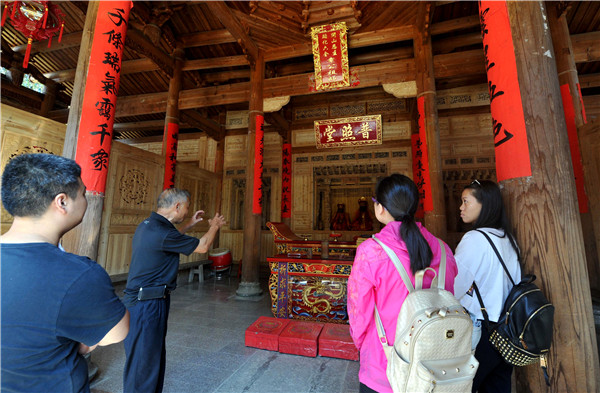 |
|
A senior tells tourists the story of the Pu Zhao Tang Temple in Yangchun. [Photo/Xinhua] |
Burden of proof
Holthuis argued for a "reversal of the burden of proof".
"Mr Van Overeem does not have a purchase invoice or any document to show the origin of the Buddha," Holthuis told the court. "Chinese government records do not show any export permit for this Buddha. Besides, a permit to export the Zhang Gong Buddha would never have been granted," he said.
"A comparative study of the statue for proof or return is no longer possible because of his (Overeem's) actions."
Invoking recommendations adopted by the Ekkart Committee, a Dutch government body in charge of returning looted World War II artworks that remain in the hands of the Dutch state, Holthuis argued that it is up to Van Overeem to prove that the statue is not Zhang Gong.
The committee's recommendations are recognized by the Tweede Kamer, the lower house of the Dutch parliament.
Since the villagers' ownership of the Buddha statue has been proven to a high degree of probability and Van Overeem has not provided legally convincing indications to the contrary, "it is up to Mr Van Overeem to prove that the Buddha is not Zhang Gong", Holthuis told Xinhua.